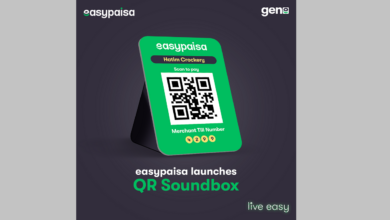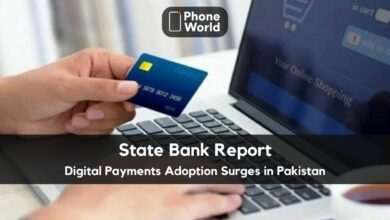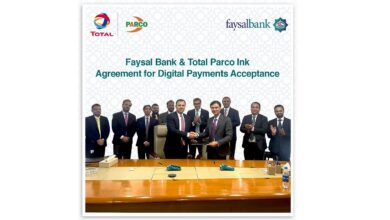Getting Payment Policies Right in the Digital Era

Digital payments, a service to send, receive and save money on mobile phones are the connective tissue of an economic system. They enable people to buy goods, purchase water and electricity, and send money to friends, family, and business partners. In the current digital era, this service enables governments to collect taxes and disburse social payments. Many readers would-be thinking, why I am going into basics but the list is long and at the concludes that this small virtual safe has the power to support livelihoods by improving access to health, education and other essential aspects of life.
Across the developing world, financial institutions have leveraged digital technologies and innovative business models to expand access to digital financial services serving as the gateway to financial inclusion. Especially during the times of lockdown due to coronavirus, the importance of mobile wallets and digital payments have created a new roadmap for the adoption of such services. Governments throughout the world are working on new policies to speed up digital payments and financial inclusion. Just recently, the government of Ghana launched the Digital Financial Services Policy to promote digital payments creating a digital ecosystem to contribute to social development and a robust economy.
Promoting digital payments in Pakistan- Getting Policies Right in the Digital Era
Chile government has introduced “Bono COVID-19” initiative, facilitating the transfer of payments to more than 2 million vulnerable Chileans bank accounts. In Peru, officials are leveraging earlier successes in channelling G2P through accounts to increase payments during the Covid emergency, and are expanding the set of financial service providers to increase digital payments in the country. Thailand has also brought reforms in terms of sending payments to bank accounts with its fully interoperable PromptPay system promoting the rapidly emerging digital payments ecosystem.
In Pakistan, we had witnessed the importance of digital payments during COVID-19 pandemic when more people relied on it instead of banknotes out of fear of contracting the virus. Many companies have collaborated with Government of Punjab’s Zakat and Ushr departments for disbursement of funds to COVID affectees showcases the importance of mobile money services during these pressing times and its widespread benefits after the pandemic is gone. To reduce the need for going to banks or ATMs and to accelerate Digital Payment Services usage, SBP has waived all charges on online fund transfers. The financial industry is also instructed to facilitate education fee and loan repayments through internet banking or mobile devices.
State Bank of Pakistan had launched its national payment systems strategy with the initial onset of COVID-19 pandemic, which introduces a new digital-focused framework to encourage the use of non-cash channels for payments in Pakistan. Now when we have witnessed another wave of covid-19 and it is more important to stay at home than before due to the intensity of the ever-growing virus, it is evident that we should learn a lesson.
However, this is the right time that government and private financial institutions should collectively work on more robust policy response which not only helps people during the COVID-19 crises but also greases Pakistan’s economy to increase digital payments which in turn will contribute to the country’s welfare. Right now, only 21% of the total population has bank accounts in Pakistan. The unbanked population is a bigger concern, but the microfinance institutions are launching initiatives that are genuinely the precursors to an evolving digital infrastructure. The Unbanked masses are provided with the same privileges as those to conventional channels. Money transfer, bill payments, maintaining accounts, and easy access to microfinance is not just empowering people to perform daily transactions swiftly but also allowing them to become an owner of their own lives through digital inclusion.
Short Term Measures with Long Term Benefits
It is evident from the real-life stories where the adoption of digital payments have paved a new path for people who were previously struggling. A 48 years old beautician, Sofia Bibi belonging from a very low-income family, got control over her money after using an app to receive money on the mobile wallet. Another inspirational story of a butcher who lost his hand and was unable to run a business for several months. Eventually, he opened a general store he heard about online payments from the people visiting the shop. From that time, he is reaping the benefits, and his online earnings are helping him to manage the shop’s expenses. A household worker, Ismael shah, who belongs from Gilgit and works in Rawalpindi, also used digital payments services to send money to his loved ones at home to meet their monthly expenses. According to him, before he was introduced to these services, his family had to wait for three months for him to pay a visit to the village. The list of inspirational stories is long, but it shows that there is immense potential in the digital transactions arena of the country.
McKinsey Consulting noted that Pakistan’s digital financial market has the potential of almost $36 billion. Widespread use of digital payments can improve the GDP by 7%, creating four million job vacancies and hence can bring more than $250 billion worth of deposits into circulation. Keeping in view this, Government should rethink the policy for increasing digital payment. No doubt, some tremendous steps are taken during the last six months, and we have also witnessed the results. So in order to make a more aggressive approach like many other developing countries, the Government needs to re-work on policy reforms.
The COVID-19 pandemic is still evolving. It’s time to turn this hardship to an opportunity and adopt digital payments. Even the cash/zakat distribution through mobile wallets will reduce overcrowding and will help people to exercise social distancing norms. Naysayers will point out that everyone in Pakistan does not have a mobile phone and mobile wallet. Of course, it’s sadly true, but while there are 160 million mobile subscribers, 10 million people, mostly poor, have mobile wallets. It’s time to turn to technology and robust payment infrastructure that will minimize the economic impact on the country but will also be protecting the livelihoods of citizens.
You Might Be Interested in: Digital Solutions Proved Effective to Contain Coronavirus: Federal Minister for IT
PTA Taxes Portal
Find PTA Taxes on All Phones on a Single Page using the PhoneWorld PTA Taxes Portal
Explore NowFollow us on Google News!






PhoneWorld ❤️❤️